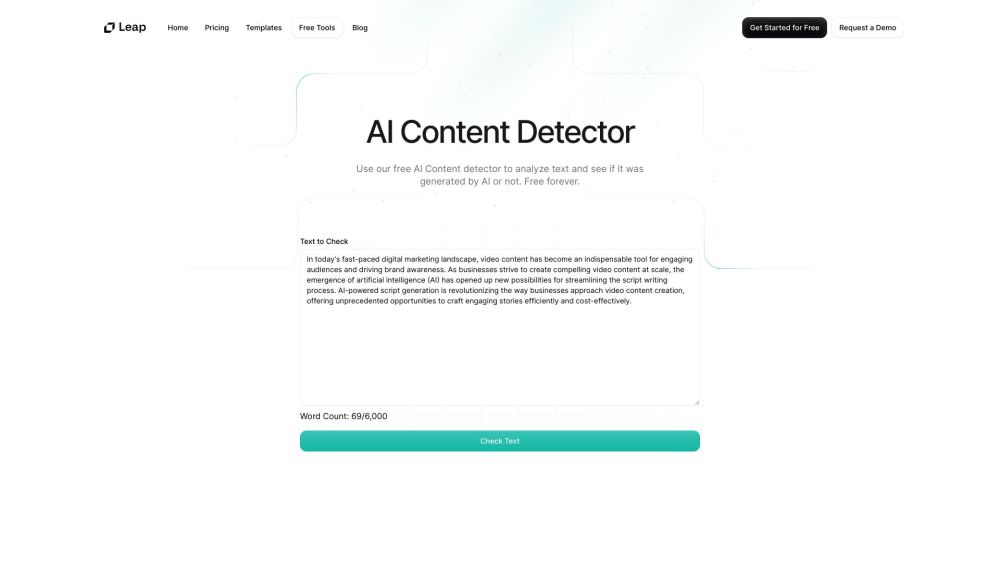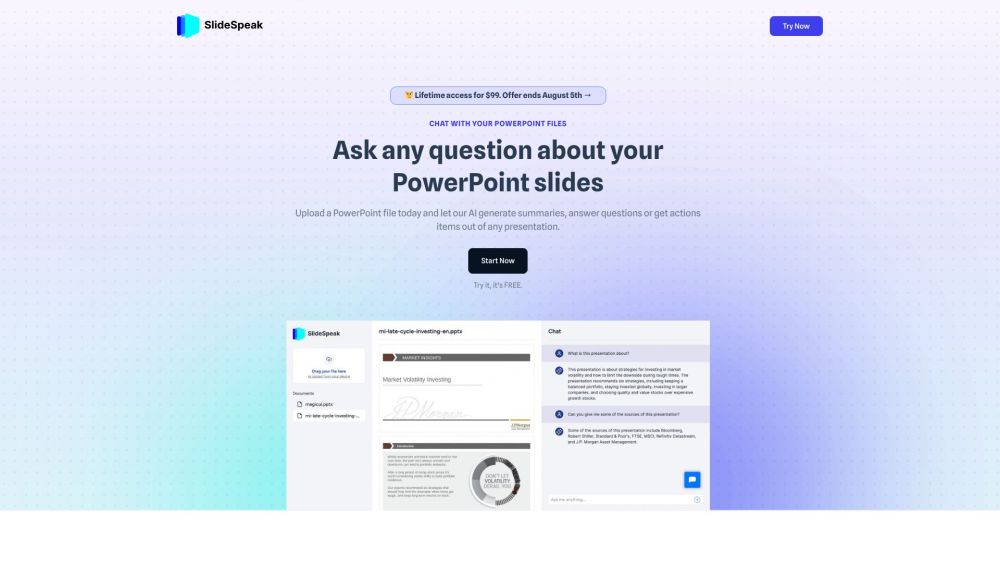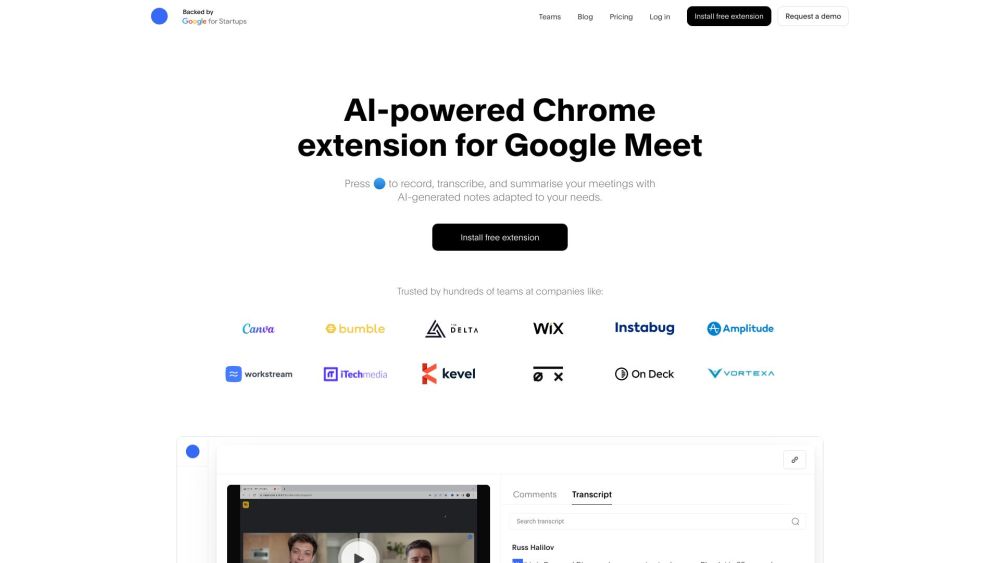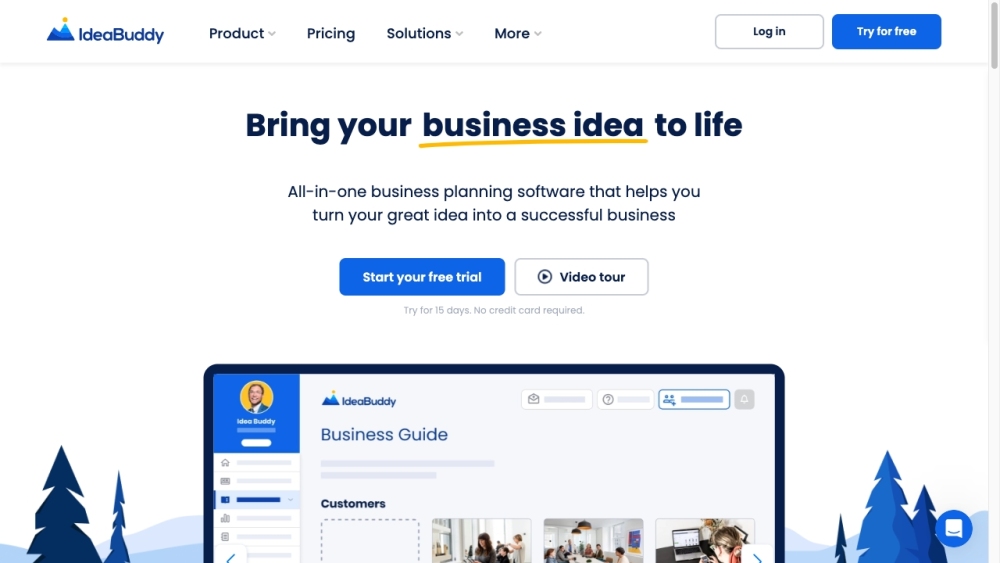Facebook Launches Open-Source 'Blender' Chatbot Project for Developers and Innovators
Most people like

Unlock the power of insights with our free AI text analysis tool. Discover how this innovative software can help you effortlessly examine, interpret, and enhance your text to drive better results. Whether you’re a student, professional, or researcher, our tool streamlines the process of text analysis, making it accessible and user-friendly for everyone. Start transforming your written content today!

Introducing SlideSpeak, an innovative chat platform designed to enhance user engagement with PowerPoint slides. This dynamic tool enables seamless interaction, transforming the way audiences experience presentations and making your slides more interactive than ever.

Introducing an AI-powered Chrome extension designed for seamless automated meeting notes. Transform how you capture and organize your discussions with this advanced tool, ensuring you never miss a crucial detail. Experience enhanced productivity and streamline your workflow with effortless note-taking right at your fingertips.

IdeaBuddy is an innovative software designed to assist entrepreneurs in transforming their ideas into successful businesses. With its user-friendly interface and comprehensive tools, IdeaBuddy guides you through the entire process of idea development, helping you to launch your entrepreneurial journey with confidence.
Find AI tools in YBX
Related Articles
Refresh Articles
